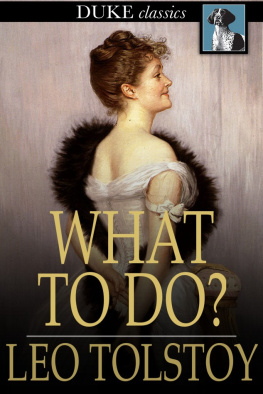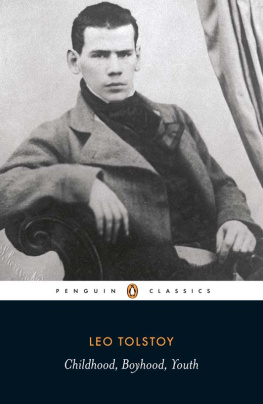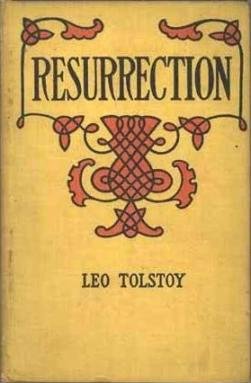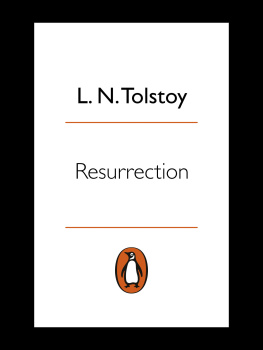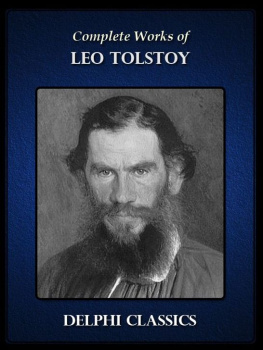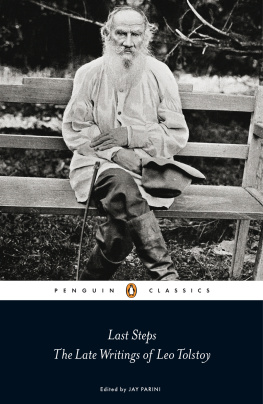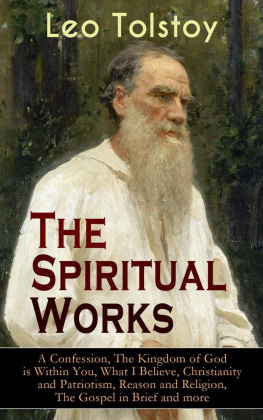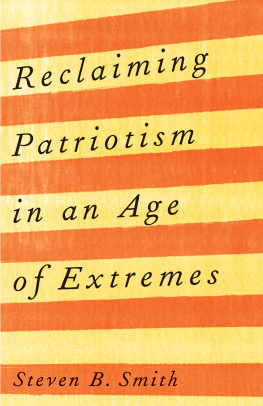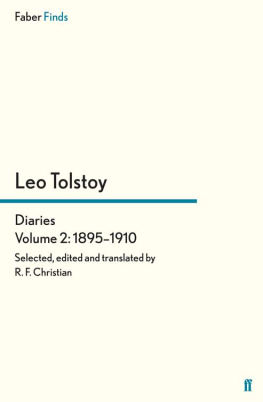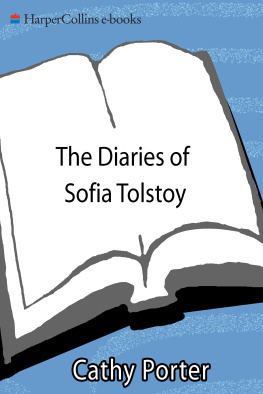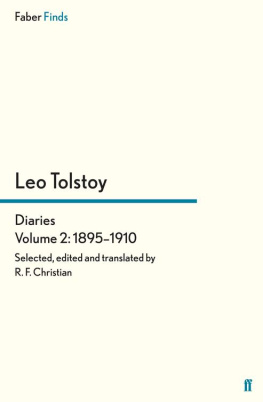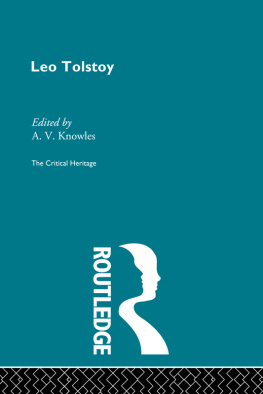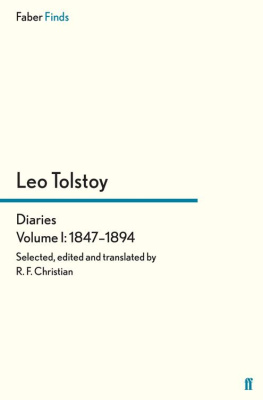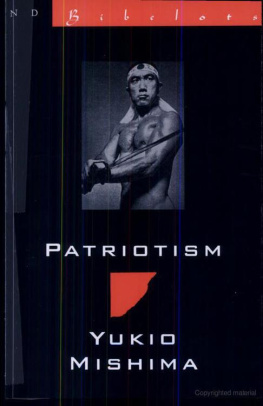Leo Tolstoy - Christianity and Patriotism
Here you can read online Leo Tolstoy - Christianity and Patriotism full text of the book (entire story) in english for free. Download pdf and epub, get meaning, cover and reviews about this ebook. year: 2012, publisher: Barnes & Noble, genre: Politics. Description of the work, (preface) as well as reviews are available. Best literature library LitArk.com created for fans of good reading and offers a wide selection of genres:
Romance novel
Science fiction
Adventure
Detective
Science
History
Home and family
Prose
Art
Politics
Computer
Non-fiction
Religion
Business
Children
Humor
Choose a favorite category and find really read worthwhile books. Enjoy immersion in the world of imagination, feel the emotions of the characters or learn something new for yourself, make an fascinating discovery.
- Book:Christianity and Patriotism
- Author:
- Publisher:Barnes & Noble
- Genre:
- Year:2012
- Rating:3 / 5
- Favourites:Add to favourites
- Your mark:
- 60
- 1
- 2
- 3
- 4
- 5
Christianity and Patriotism: summary, description and annotation
We offer to read an annotation, description, summary or preface (depends on what the author of the book "Christianity and Patriotism" wrote himself). If you haven't found the necessary information about the book — write in the comments, we will try to find it.
In this carefully constructed critical essay, written in 1894, Tolstoy admonishes a government that wages war by arousing patriotic fervor and a Church that supports such a governments policies. His argumentthat war and patriotism have nothing in common with the Christian principles of nonviolence and nonresistancecontinues to resound today.
Christianity and Patriotism — read online for free the complete book (whole text) full work
Below is the text of the book, divided by pages. System saving the place of the last page read, allows you to conveniently read the book "Christianity and Patriotism" online for free, without having to search again every time where you left off. Put a bookmark, and you can go to the page where you finished reading at any time.
Font size:
Interval:
Bookmark:
LEO TOLSTOY

This 2012 edition published by Barnes & Noble, Inc.
All rights reserved. No part of this publication may be reproduced, stored in a retrieval system, or transmitted, in any form or by any means, electronic, mechanical, photocopying, recording, or otherwise, without prior written permission from the publisher.
Barnes & Noble, Inc.
122 Fifth Avenue
New York, NY 10011
ISBN: 978-1-4114-6490-2
Preface to First Edition
THE Franco-Russian celebrations in the October of last year, 1893, in France, aroused in me, as probably in many other people, at first a feeling of amusement, then of perplexity, then of indignation, to which I intended to give expression in a brief magazine article; but as I looked more and more deeply into the chief causes of this strange phenomenon, I arrived at the reflections which I now lay before the reader.
L. N. TOLSTOY, 1894.
Introduction
THIS astonishing piece of genius, "Christianity and Patriotism," written by Tolstoy in 1894, is scarcely known at all in England. A translation appeared in 1896, which has long gone out of print, and the only other version that is procurable, I believe, is that contained in the expensive twenty-four volume American edition by Wiener of "The Complete Works of Count Tolstoy." Nor have the critics laid stress on it. In his voluminous "Life of Tolstoy: Later Years," 600 pages, Mr. Aylmer Maude only devoted six lines to it, though in a later volume, "Leo Tolstoy," 1918, he has analyzed Tolstoy's theory of "Non-Resistance and his Antagonism to Governments" expressed in "The Kingdom of God is within You." Romain Rolland, in his brilliant study "Tolstoy," 1911, does not refer to "Christianity and Patriotism" at all, and I must confess that my little monograph "Tolstoy," 1914, also contains no allusion to it. Yet "Christianity and Patriotism" is one of the most searching pieces of moral polemics Tolstoy ever penned. Its main arguments against War, Governments and Patriotism had been developed by him a year earlier, 1893, in "The Kingdom of God is within You," also a work of extraordinary force. And these and other arguments were reiterated by him to the year of his death in various essays and letters to the Press in astonishing variety. But for cogency and force he never surpassed "Christianity and Patriotism." Of course, his voice was powerless to stay the progress of the great European catastrophe, and to the young generation, the flower of European youth, sacrificed on the altar of the Balance of Power, 191418, Tolstoy was merely a great, misty name. Tolstoy's fame, indeed, was worldwide, but he had attacked the whole system of the State, Church, Christianity, Militarism, Capitalism, Industrialism, and Imperialism; and European society, while superficially applauding him from time to time, turned a deaf ear to his warnings.
This was made manifest during the Great War by the significant fact that Tolstoy's name was never mentioned. He, the greatest of all nineteenth-century writers and spiritual forces, had died on November 22nd, 1910, and from the first week of August 1914, the curtain of war, of war aims and feelings, rolled down, shutting off even the echoes of the great Russian's predictions and denunciations of the "false public opinion" long so assiduously propagated by the European Governments and the Press generally.
It was as though Tolstoy's warnings had been written in ink which faded before men's eyes when the Churches and the clergy of all the combatant States began blessing the cannons and the bayonets, and later the bombs and the land-mines and the poison gas. Christ was mobilized by all the Churches, but not Tolstoy.
It was, indeed, natural that Tolstoy, the great anti-militarist, should be ostracized. Even before his death, in the light of the rising sun of the Anglo-French-Russian Entente, a new school of writers in England was busy lavishing enthusiasm on all things Russian, from the Russian soul to Russian blouses. The virtues of the Russian moujik and of the Royal House of Romanov were being ingeniously intertwined in the panegyrics of English publicists and journalists. But Tolstoy, who had from the first poured scathing contempt on the conceit and vainglory of the German Emperor, William II., and his militarist prepossessions, at a time when English statesmen were coquetting with him and saw in Russia the enemy, had denounced the Russian autocracy with no less vigour. And so, naturally, Tolstoy's piercing invective, his prophetic indignation with all the shams, hypocrisies, and varnished lacquer that covered the worm-eaten wood of the political and social order, seemed, in the four years between his death and the European War, somehow to have become vieux jeu.
Suddenly the European volcano rumbled and went up in smoke and flame of war. The great Russian prophet had spoken truly. The whole scheme of ideas, political and patriotic, by which the deception of the peoples is made possible by their Governments, had opened before the nations a frightful abyssan abyss into which whole countries and classes have since been hurled. The immunity Great Britain has enjoyed owing to her insular position from invading armies, from scenes of horror and desolation, of famine and bankruptcy that the afflicted peoples of the most unfortunate States have faced, with their black legacy today, may still veil from the British consciousness the extraordinary prophetic insight shown in "Christianity and Patriotism." But the logic of his conclusions is irrefutable:
"It is a terrible thing to say, but there is not, and there never has been, a combined act of violence by one set of people upon another set of people which has not been perpetrated in the name of patriotism. In the name of patriotism the Russians have waged war on the French and the French on the Russians. And in the name, too, of patriotism the Russians are now preparing with the French to make war on the Germans, and in the name of patriotism the Germans are preparing now to wage war on two fronts. But it is not only warin the name of patriotism the Russians oppress the Poles and the Germans the Slavs; in the name of patriotism the Communards slaughtered the Versaillistes and the Versaillistes slaughtered the Communards" ().
Not that all Tolstoy's conclusions were sound. He underrated, perhaps for argumentative reasons, the inherent vitality of Nationalism. Nationalism, as has been proven these last years, can act like a raging prairie fire, and when once the patriotic sentiments, prejudices, and fears of the average citizen have caught alight, the fire sweeps over everything, sustaining itself by them, obliterating the finer altruistic sense of human nature. The roots of Nationalism are not to be destroyed. In this respect, "the false public opinion" of which Tolstoy speaks is not so much false in its essence as in its proportions and dimensions. At the same time the Great War was only rendered possible through the automatic manufacture in every country of this "false public opinion," which Tolstoy exposes with extraordinary skill in his account of the Franco-Russian celebrations in Toulon, 1893. (See also )
But we need not continue. The truth of Tolstoy's contentions and arguments, if not of his indictment of patriotism, is now accepted by the public conscience of the civilized world, which is now supporting "The League of Nations." And not the least striking attestations to Tolstoy's contentions have lately been given by the two English statesmen, Lord Lansdowne and Lord Grey, "who between them directed England's foreign policy continuously for half a generation." Lord Lansdowne has written:
"Our people will not be content to admit that our statesmanship is bankrupt, that
Font size:
Interval:
Bookmark:
Similar books «Christianity and Patriotism»
Look at similar books to Christianity and Patriotism. We have selected literature similar in name and meaning in the hope of providing readers with more options to find new, interesting, not yet read works.
Discussion, reviews of the book Christianity and Patriotism and just readers' own opinions. Leave your comments, write what you think about the work, its meaning or the main characters. Specify what exactly you liked and what you didn't like, and why you think so.


